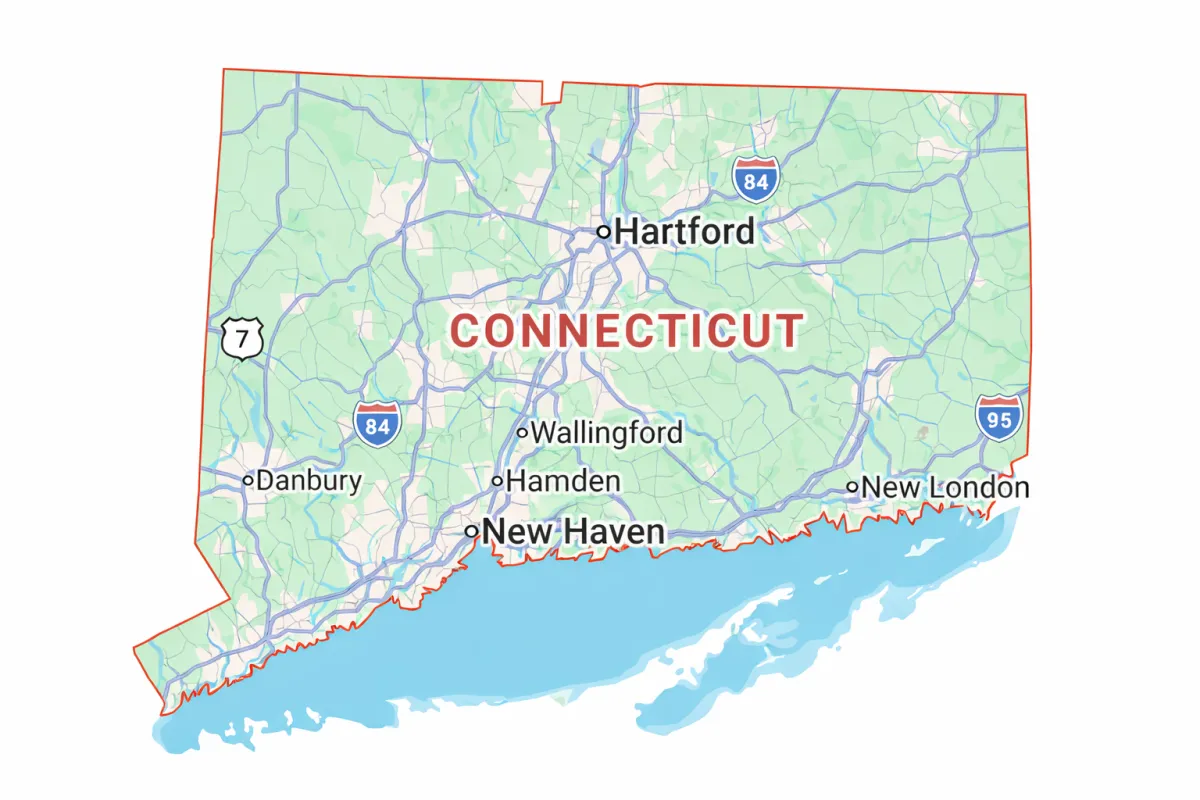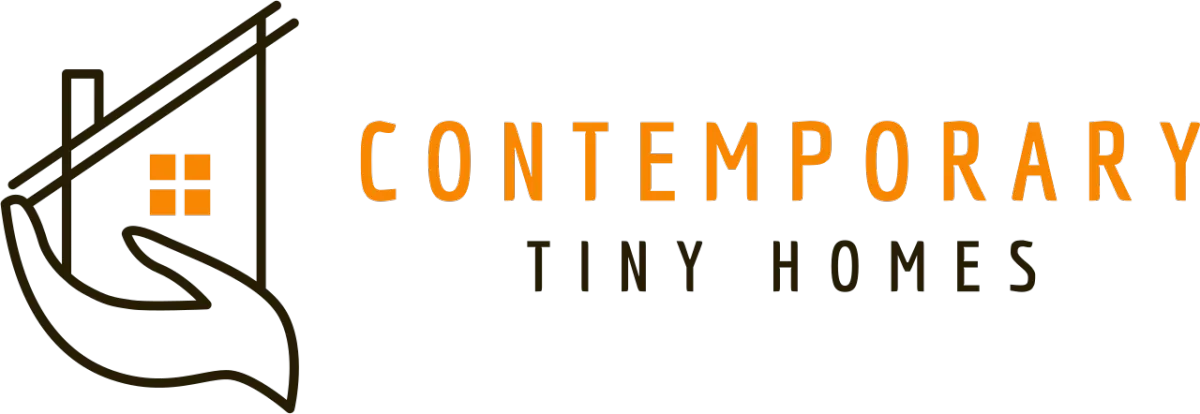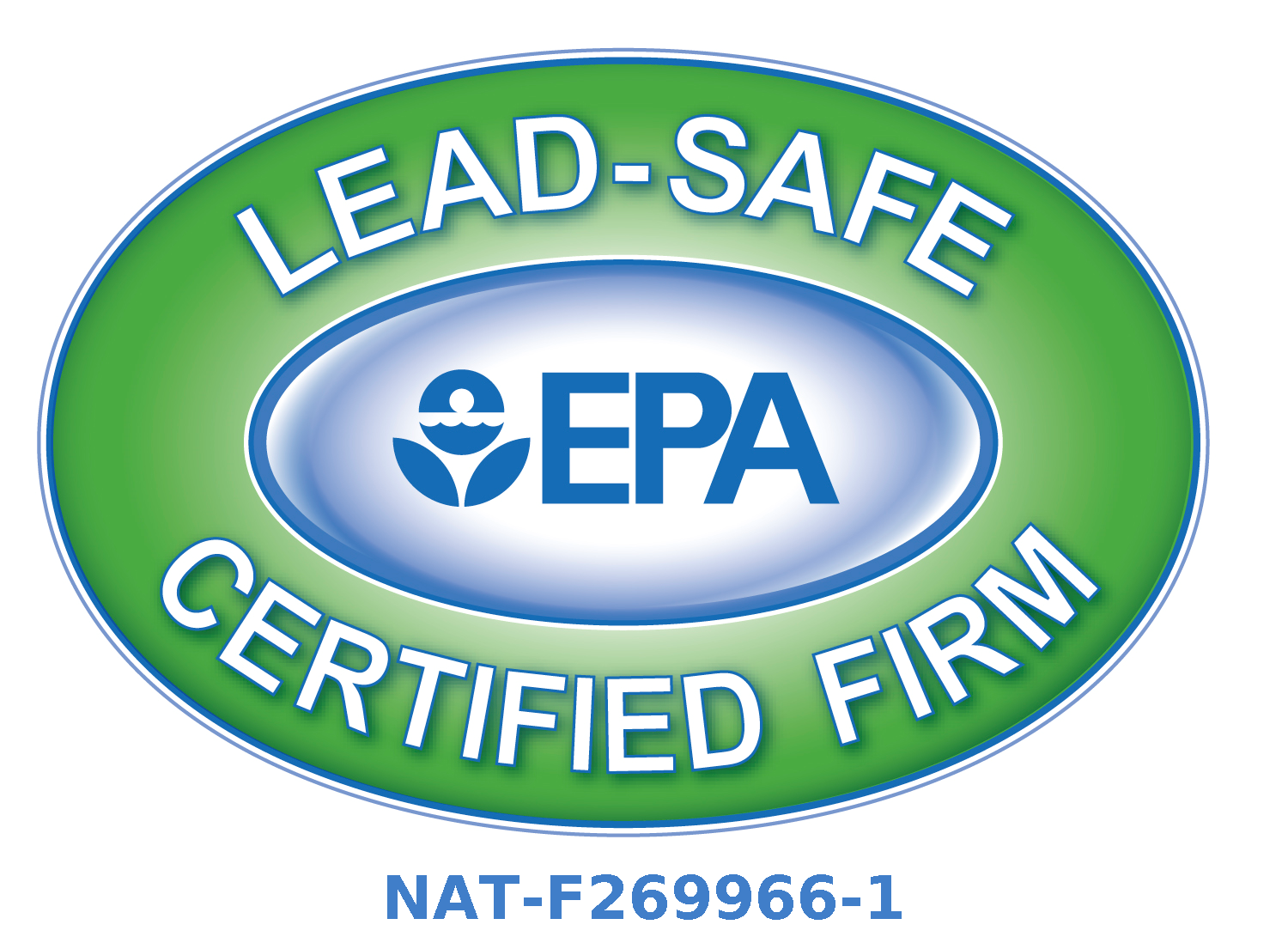Knowledge Center: Your Go-To Resource for ADUs and Tiny Living
Knowledge Center: Your Go-To Resource for ADUs and Tiny Living
Email [email protected]
Phone 860-TINY-HOM (es)

List of Connecticut Towns that allow ADUs
Connecticut has been making efforts to update its laws regarding Accessory Dwelling Units (ADUs) to increase housing options. The state has adopted legislation that encourages municipalities to allow ADUs, but specific regulations may vary by town or city. Here are some key points about ADUs in Connecticut below.
We also recommend visiting Serving Connecticut at Contemporary Tiny Homes to learn how our team can help you build your ADU on your Connecticut property.
Accessory Dwelling Units
State Legislation: In 2021, Connecticut passed a law that promotes ADU development across the state. It encourages municipalities to allow the construction of ADUs as of right, meaning they do not require special permits or variances.
Local Zoning: While the state law sets a framework, local towns and cities can still impose their regulations. They may have different requirements related to size, design, and where ADUs can be built.
Opt-Out Option: Municipalities can choose to opt out of the ADU provisions if they hold a public hearing and follow certain procedures. Some towns may restrict ADUs or impose additional conditions despite state encouragement.
Key Considerations
Permits: Building permits are required for both ADUs and tiny homes on foundations, and they must meet building codes and safety standards.
Utilities: ADUs and tiny homes must be connected to utilities like water, sewage, and electricity, which can add complexity to the approval process.
Check Local Ordinances: Since each municipality in Connecticut can have its own regulations, it's essential to check the specific zoning laws and ordinances in the area where you plan to build or place an ADU or tiny home.
ADU Zoning Laws for Fairfield County, Connecticut

Does Bethel, CT allow ADUs?
Bethel's zoning regulations permit ADUs under specific conditions related to unit size, lot size, and occupancy. Detached ADUs are typically subject to stricter guidelines than attached units.
Does Bridgeport, CT allow ADUs?
Bridgeport's zoning laws are more lenient towards ADUs in an effort to increase affordable housing options. ADUs are allowed in certain residential zones, but they must comply with specific building codes and size restrictions.
Does Brookfield, CT allow ADUs?
ADUs in Brookfield are allowed in certain residential zones with requirements that they be smaller than the primary dwelling and meet local building and zoning standards.
Does Danbury, CT allow ADUs?
Danbury permits ADUs in designated residential areas, subject to conditions like size limitations, parking requirements, and the need for the unit to be attached to or located on the same lot as the main residence.
Does Darien, CT allow ADUs?
Darien allows for ADUs but imposes restrictions to ensure they remain subordinate to the primary residence. The town emphasizes that these units should not alter the single-family character of the neighborhood.
Does Easton, CT allow ADUs?
Easton permits ADUs with specific size limitations and placement requirements on the property. The town encourages ADUs as a way to provide affordable housing while maintaining its rural character.
Does Fairfield, CT allow ADUs?
Fairfield allows ADUs in most residential zones, with restrictions on unit size and design to ensure they fit within the local architectural style and do not disrupt the neighborhood's aesthetics.
Does Greenwich, CT allow ADUs?
Greenwich has stricter zoning laws regarding ADUs. They generally require the ADU to be within the primary structure and limit its size relative to the main house. Detached ADUs are less common due to local zoning restrictions.
Does Monroe, CT allow ADUs?
Monroe’s zoning laws allow for ADUs in residential areas, provided they comply with requirements like maximum square footage and owner occupancy. These units are intended to be supplementary to the primary residence.
Does New Canaan, CT allow ADUs?
New Canaan has strict guidelines on ADUs, requiring them to be attached to the main house. The town focuses on ensuring these units are used primarily for family members or as rental units that do not affect the local housing density.
Does Newtown, CT allow ADUs?
Newtown allows for ADUs in specific zones, subject to restrictions on size, lot coverage, and occupancy. The town emphasizes that these units must blend seamlessly with the existing residential structures.
Does Norwalk, CT allow ADUs?
Norwalk allows ADUs in most residential zones, with conditions that focus on maintaining neighborhood aesthetics and minimizing the impact on traffic and parking. Owner occupancy of either the main house or the ADU is often required.
Does Ridgefield, CT allow ADUs?
Ridgefield permits ADUs with conditions that ensure they are secondary to the main dwelling. Detached units may face more stringent requirements compared to those attached to the house.
Does Redding, CT allow ADUs?
Redding allows ADUs in residential areas, primarily focusing on those that provide housing for family members or serve as rental units to increase affordable housing options.
Does Shelton, CT allow ADUs?
Shelton allows for the construction of ADUs as long as they meet zoning requirements, including setbacks, height restrictions, and parking provisions. ADUs must maintain the appearance of a single-family home.
Does Stamford, CT allow ADUs?
Stamford permits both attached and detached ADUs with specific guidelines regarding unit size, setbacks, and lot coverage. The city encourages ADU development to address housing shortages but imposes conditions to preserve neighborhood character.
Does Stratford, CT allow ADUs?
Stratford permits ADUs primarily in residential zones, with conditions regarding the maximum size of the unit, its location on the lot, and compliance with local building regulations.
Does Trumbull, CT allow ADUs?
Trumbull allows ADUs, focusing on accessory units that provide housing for family members or rental income. Regulations ensure the ADU remains secondary to the main dwelling in size and appearance.
Does Weston, CT allow ADUs?
Weston permits ADUs with specific conditions related to their size, placement on the lot, and usage. The town encourages these units as a means of creating more diverse housing options while preserving its suburban character.
Does Westport, CT allow ADUs?
Westport's zoning regulations are relatively flexible, allowing for both attached and detached ADUs. However, they require a detailed review process to ensure that the units align with community standards and building codes.
Does Wilton, CT allow ADUs?
Wilton has detailed regulations for ADUs, emphasizing that they must be smaller than the main house and adhere to strict design guidelines to maintain the residential character of the area.
ADU Zoning Laws for Litchfield County, Connecticut

Does Bantam, CT allow ADUs?
Bantam generally follows Litchfield's guidelines, allowing ADUs primarily as accessory to the main dwelling. The town emphasizes maintaining the rural character in any development.
Does Barkhamsted, CT allow ADUs?
ADUs are permitted in Barkhamsted, with regulations focusing on maintaining the rural and residential character of the area. The size and design of the unit must be in line with local standards.
Does Bethlehem, CT allow ADUs?
Bethlehem allows ADUs in certain residential zones with strict requirements regarding size, setbacks, and architectural consistency with the primary dwelling.
Does Bridgewater, CT allow ADUs?
Bridgewater permits ADUs with limitations on their size and occupancy, emphasizing that these units should blend seamlessly with the primary structure and surrounding properties.
Does Canaan, CT allow ADUs?
In Canaan, ADUs are generally permitted under zoning laws, with regulations that focus on maintaining the low-density residential nature of the town.
Does Colebrook, CT allow ADUs?
Colebrook allows ADUs as long as they meet specific zoning requirements, including lot size, setbacks, and adherence to the town's rural character.
Does Cornwall, CT allow ADUs?
Cornwall has supportive regulations for ADUs, particularly when used for family members or as affordable housing. The town focuses on ensuring that these units do not disrupt the rural community feel.
Does Goshen, CT allow ADUs?
Goshen permits ADUs with restrictions on size and placement, typically requiring them to be either attached to or closely integrated with the main residence.
Does Harwinton, CT allow ADUs?
Harwinton allows ADUs in residential areas but has guidelines in place to ensure they remain secondary in size and use to the primary dwelling.
Does Kent, CT allow ADUs?
Kent supports ADUs, particularly in efforts to promote affordable housing. The town has guidelines regarding unit size and owner occupancy.
Does Litchfield, CT allow ADUs?
Litchfield permits ADUs, focusing on preserving the historic and rural character of the town. Detached ADUs face more stringent regulations compared to attached units.
Does Morris, CT allow ADUs?
Morris allows ADUs in specific zones, with conditions that emphasize maintaining the residential character and ensuring the unit is used for supplementary housing.
Does New Hartford, CT allow ADUs?
ADUs in New Hartford are allowed with limitations on size and design, aiming to provide additional housing options while preserving the local community feel.
Does New Milford, CT allow ADUs?
New Milford has relatively flexible regulations for ADUs, allowing them in most residential zones as long as they meet building code requirements and are designed to blend with the neighborhood.
Does Norfolk, CT allow ADUs?
Norfolk permits ADUs but imposes restrictions to ensure these units are in line with the existing residential and rural architecture of the town.
Does Plymouth, CT allow ADUs?
ADUs are allowed in Plymouth, with specific requirements regarding size, location, and use to ensure that they remain secondary to the main residence.
Does Roxbury, CT allow ADUs?
Roxbury has strict ADU regulations focused on preserving the rural and low-density character of the town, often requiring special permits for these units.
Does Salisbury, CT allow ADUs?
Salisbury allows ADUs with a focus on providing affordable housing options. The regulations are designed to maintain the town's historical and rural aesthetics.
Does Sharon, CT allow ADUs?
Sharon permits ADUs, emphasizing that they should be compatible with the local architecture and not exceed specific size limitations relative to the main home.
Does Thomaston, CT allow ADUs?
ADUs are allowed in Thomaston under specific zoning guidelines that ensure they remain accessory to the primary residence and meet the town's residential standards.
Does Torrington, CT allow ADUs?
Torrington supports the development of ADUs, particularly for multi-generational housing, with guidelines that focus on unit size and compatibility with existing neighborhoods.
Does Warren, CT allow ADUs?
Warren allows ADUs with limitations on size and a focus on preserving the rural and agricultural character of the area.
Does Washington, CT allow ADUs?
Washington permits ADUs, but they must adhere to specific standards that ensure they do not alter the town's low-density, rural appearance.
Does Watertown, CT allow ADUs?
ADUs in Watertown are allowed with regulations that focus on size, setbacks, and maintaining the residential nature of the community.
Does Winchester, CT allow ADUs?
Winchester permits ADUs in residential zones with conditions on size, location, and design to ensure they fit the local community character.
Does Woodbury, CT allow ADUs?
Woodbury allows ADUs with specific requirements that focus on preserving the town's historic and rural character. Detached units typically require stricter zoning compliance.
ADU Zoning Laws for Hartford County, Connecticut

Does Avon, CT allow ADUs?
Avon allows ADUs by special permit in residential zones, typically requiring that they do not exceed a specific percentage of the primary dwelling's size.
Does Berlin, CT allow ADUs?
ADUs are permitted in Berlin with regulations that focus on maintaining the residential character of neighborhoods. There are limitations on size and use, usually for family members or as affordable housing options.
Does Bloomfield, CT allow ADUs?
Bloomfield has specific zoning laws allowing ADUs in residential areas, provided they meet size and setback requirements and are not used as short-term rentals.
Does Bristol, CT allow ADUs?
Bristol permits ADUs in most residential zones, emphasizing compatibility with the neighborhood's character and requiring owner occupancy for one of the units.
Does Burlington, CT allow ADUs?
Burlington allows ADUs with restrictions on their size relative to the main dwelling and requirements to maintain the town's rural and low-density character.
Does Canton, CT allow ADUs?
ADUs are allowed in Canton, but they must meet certain criteria related to size, aesthetics, and use to ensure they integrate well with the existing neighborhood.
Does East Granby, CT allow ADUs?
East Granby permits ADUs, focusing on preserving the residential feel of the community and requiring that these units be clearly secondary to the main residence.
Does East Hartford, CT allow ADUs?
East Hartford allows ADUs in residential zones with specific guidelines regarding their size, placement, and use, typically aimed at providing additional housing options for family members.
Does East Windsor, CT allow ADUs?
ADUs are permitted in East Windsor under specific conditions, primarily to support affordable housing needs while maintaining neighborhood integrity.
Does Enfield, CT allow ADUs?
Enfield supports the development of ADUs with certain size and setback requirements, ensuring they are accessory to the primary residence and not disruptive to the local area.
Does Farmington, CT allow ADUs?
Farmington allows ADUs with a focus on maintaining the historical and residential character of the town. Size restrictions and architectural compatibility are often required.
Does Glastonbury, CT allow ADUs?
ADUs in Glastonbury are permitted in most residential areas with conditions that they blend with the primary dwelling and respect local zoning codes.
Does Granby, CT allow ADUs?
Granby allows ADUs under specific zoning conditions aimed at preserving the rural character of the community while providing more flexible housing options.
Does Hartford, CT allow ADUs?
Hartford has a relatively progressive approach to ADUs, encouraging their development in various zones to address affordable housing needs, with a focus on size and use limitations.
Does Manchester, CT allow ADUs?
Manchester permits ADUs with size and use restrictions to ensure they complement the main dwelling and fit into the residential character of neighborhoods.
Does Marlborough, CT allow ADUs?
Marlborough's zoning laws for ADUs emphasize preserving the town's residential character, with specific requirements on unit size and integration with the main home.
Does New Britain, CT allow ADUs?
New Britain allows ADUs primarily in residential zones, focusing on creating additional affordable housing options while maintaining strict size regulations.
Does Newington, CT allow ADUs?
ADUs are permitted in Newington with regulations that limit their size and ensure they are used as supplementary to the main dwelling, often for family housing.
Does Plainville, CT allow ADUs?
Plainville allows ADUs with guidelines that require the unit to be smaller than the main home and used for either family members or long-term rentals.
Does Rocky Hill, CT allow ADUs?
Rocky Hill has zoning laws that permit ADUs with conditions related to size, aesthetics, and location, ensuring they align with the town’s residential standards.
Does Simsbury, CT allow ADUs?
Simsbury supports the construction of ADUs, focusing on maintaining the historical and rural aesthetics of the town while providing flexible housing options.
Does Southington, CT allow ADUs?
Southington allows ADUs, but they must meet specific zoning requirements to ensure they remain subordinate to the primary dwelling and fit the local character.
Does South Windsor, CT allow ADUs?
South Windsor permits ADUs with restrictions on size and occupancy, aiming to keep them accessory to the primary home and preserve neighborhood standards.
Does Suffield, CT allow ADUs?
Suffield allows ADUs in residential zones with strict guidelines on size and usage to ensure they are consistent with the local housing style.
Does West Hartford, CT allow ADUs?
West Hartford has relatively flexible ADU regulations to promote affordable housing, focusing on unit size, owner occupancy, and neighborhood compatibility.
Does Wethersfield, CT allow ADUs?
Wethersfield allows ADUs with specific zoning conditions, including size limitations and requirements that they blend with the existing housing style.
Does Windsor, CT allow ADUs?
Windsor permits ADUs with guidelines on their size and use to ensure they remain accessory to the primary residence while providing additional living space.
Does Windsor Locks, CT allow ADUs?
ADUs are allowed in Windsor Locks under zoning laws that regulate their size, location, and occupancy to ensure they fit into the residential landscape.
ADU Zoning Laws for New Haven County, Connecticut

Does Ansonia, CT allow ADUs?
Ansonia permits ADUs under specific guidelines that regulate the size and location of the units, ensuring they are secondary to the main dwelling and do not alter the residential character of neighborhoods.
Does Beacon Falls, CT allow ADUs?
ADUs are allowed with restrictions on size and must meet specific criteria regarding their location on the property to maintain consistency with local zoning laws.
Does Bethany, CT allow ADUs?
Bethany has conservative regulations concerning ADUs, focusing on preserving the rural character of the area. ADUs must be clearly secondary to the main home.
Does Branford, CT allow ADUs?
Branford allows ADUs primarily to encourage affordable housing options. The town has clear guidelines on size and placement, requiring ADUs to blend with the existing neighborhood aesthetics.
Does Cheshire, CT allow ADUs?
ADUs are permitted in Cheshire but require adherence to size and setback regulations to ensure they remain secondary to the primary dwelling and maintain the residential feel of the area.
Does Derby, CT allow ADUs?
Derby supports ADUs in residential zones with specific zoning conditions aimed at increasing housing options while preserving neighborhood standards.
Does East Haven, CT allow ADUs?
East Haven permits ADUs with requirements on their size and location, designed to ensure they do not disrupt the residential nature of neighborhoods.
Does Guilford, CT allow ADUs?
ADUs in Guilford are allowed with strict guidelines regarding their size and use, ensuring they fit within the town's zoning laws and residential character.
Does Hamden, CT allow ADUs?
Hamden has progressive ADU regulations that permit these units in various residential zones. There are requirements on the size and the necessity for owner occupancy.
Does Madison, CT allow ADUs?
Madison allows ADUs with specific restrictions that aim to preserve the town’s character and maintain a balance between the primary dwelling and the accessory unit.
Does Meriden, CT allow ADUs?
Meriden's zoning laws permit ADUs in residential areas, focusing on ensuring these units are used as supplementary housing options without drastically altering the neighborhood.
Does Middlebury, CT allow ADUs?
ADUs are allowed in Middlebury with regulations that control their size and ensure that they remain secondary to the primary residence, maintaining the town's low-density character.
Does Milford, CT allow ADUs?
Milford permits ADUs with guidelines that emphasize compatibility with the primary home and adherence to local zoning regulations to keep the residential feel of neighborhoods.
Does Naugatuck, CT allow ADUs?
Naugatuck supports ADUs but requires strict adherence to size and location requirements to ensure they are clearly secondary to the main dwelling.
Does North Branford, CT allow ADUs?
ADUs in North Branford are allowed under specific zoning rules that regulate their size and use to maintain the rural character of the area.
Does North Haven, CT allow ADUs?
North Haven permits ADUs but imposes strict conditions on their size, location, and occupancy to ensure they fit within the town’s zoning framework.
Does Orange, CT allow ADUs?
Orange allows ADUs primarily for family use, with requirements on size and the need for owner occupancy to ensure these units do not become rental properties.
Does Oxford, CT allow ADUs?
ADUs in Oxford are permitted with conditions focused on maintaining the rural character of the area and ensuring these units are secondary to the main residence.
Does Prospect, CT allow ADUs?
Prospect permits ADUs under strict zoning guidelines that limit their size and use, ensuring they blend with the town's residential zoning standards.
Does Seymour, CT allow ADUs?
Seymour supports the development of ADUs, provided they meet local regulations on size, location, and integration with the primary dwelling.
Does Southbury, CT allow ADUs?
ADUs are allowed in Southbury with conditions that ensure they remain accessory to the main home and fit the town's low-density zoning policies.
Does Wallingford, CT allow ADUs?
Wallingford allows ADUs with guidelines focused on size, aesthetics, and occupancy, ensuring they do not disrupt the neighborhood’s residential character.
Does Waterbury, CT allow ADUs?
Waterbury has specific regulations that permit ADUs in residential zones, focusing on providing affordable housing options while maintaining community standards.
Does West Haven, CT allow ADUs?
West Haven permits ADUs in residential areas, with specific guidelines on unit size, location, and use to ensure they complement the existing residential structure.
Does Wolcott, CT allow ADUs?
Wolcott supports ADUs but has zoning requirements that restrict their size and location to maintain the town’s rural and low-density character.
Does Woodbridge, CT allow ADUs?
Woodbridge allows ADUs with specific conditions aimed at ensuring they do not become the main focus on the property and that they preserve the town’s residential nature.
Visit https://ctiny.homes/service-area-connecticut to learn how Contemporary Tiny Homes can help you unlock the potential of your Connecticut property.

Copyright 2026. All rights reserved. Norwalk, CT
Connecticut's New Home Construction Contractor License: #NHC.0017654
EPA Lead-Safe Certified NAT-F269966-1



